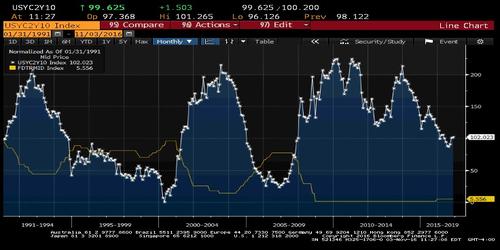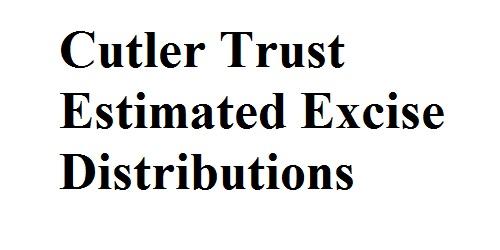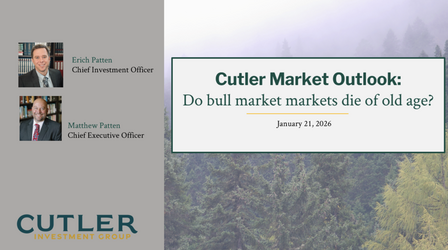Cutler Commentary
The Sun Also Rises
November 09, 2016
"The world was not wheeling anymore. It was just very clear and bright and inclined to blur at the edges." ? Ernest Hemingway, The Sun Also Rises
The election of Donald Trump is a sharp departure from the past eight years for investors. While his policies are opaque, he is likely to work in concert with Republican principles, given the one-party control of Congress. This will most likely manifest itself in reform of Obamacare, potentially extending to entitlement reform and tax reform. Candidate Trump espoused an opposition to trade, which, in our view would be negative to economic growth. It seems likely that Congress is less inclined to tackle this issue first, as traditional Republican orthodoxy is contrary to the President-elect. While citizens will naturally have deeply divided views about the impact of these policy changes, the stock market appears agnostic to politics.
After the initial overnight market dislocation, investors awoke to a stock market rally and bond sell off. Why? The near-term answer appears to be stimulus. Perceived monetary stimulus increased, with pundits questioning if the Federal Reserve's forecasted December hike has been "put on hold." Fiscal stimulus is also anticipated, with a reported Trump stimulus package estimated to be 3x the size of a comparable Clinton proposal. The combined effect is inflationary, which led to a long-dated US Treasury sell-off. There are reasons why rates may continue to rise, and we will be monitoring client exposure to this asset class closely. The US government, however, maintains an enormous incentive to keeping long-term rates low. While the market determines value, this underlying liability should limit the long-term rate rise in the medium term.
What should clients be doing with their investment portfolios? Initial investment reaction has been severe in certain asset classes. Hospital stocks understandably sold off significantly. Pharmaceuticals rallied. Many industrials also rallied. There has been a reset for the outlook of certain industries, but repositioning portfolios at times of market stress is typically ill-advised. Avoid the temptation to chase performance. Instead, focus on your goals and objectives and how the risk of your investments fits within the context of your financial plan. Understanding this will give you a greater ability to weather any uncertainty and volatility. Just as we always do when we have a change in party control, we will be closely monitoring policy and its potential impacts on your portfolio. Please reach out to us if you would like to discuss the positioning of your investments or how this election impacts your portfolio.
CATEGORIES
Disclaimer
These blogs are provided for informational purposes only and represent Cutler Investment Group’s (“Cutler”) views as of the date of posting. Such views are subject to change at any point without notice. The information in the blogs should not be considered investment advice or a recommendation to buy or sell any types of securities. Some of the information provided has been obtained from third party sources believed to be reliable but such information is not guaranteed. Cutler has not taken into account the investment objectives, financial situation or particular needs of any individual investor. There is a risk of loss from an investment in securities, including the risk of loss of principal. Different types of investments involve varying degrees of risk, and there can be no assurance that any specific investment will be profitable or suitable for a particular investor's financial situation or risk tolerance. Any forward looking statements or forecasts are based on assumptions and actual results are expected to vary. No reliance should be placed on, and no guarantee should be assumed from, any such statements or forecasts when making any investment decision.





